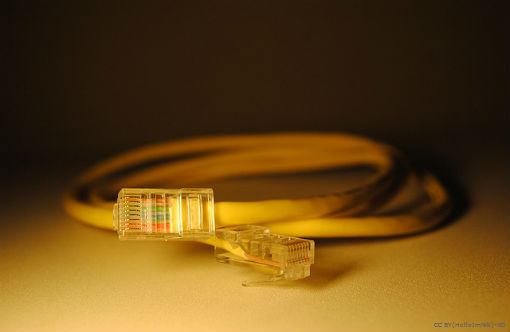Debates over Intermediary liability in Argentina
by Digital Rights LAC on June 12, 2013
In recent months, Argentina has seen the revival of a Congressional debate concerning a bill that would govern intermediary liability. In a country where courts frequently hear lawsuits against the Internet’s largest search engines, such as Google and Yahoo!, over content that third parties have posted online, such a bill is of no little significance.
Atilio Grimani and Eleonora Rabinovich, Association for Civil Rights .
The bill in question (Number 2668-D-2012) was proposed by Representative Federico Pinedo of the Republican Proposal party (PRO), and it has two primary planks. The first would establish a model of conditional immunity for Internet intermediaries, and the second would allow judicial intervention prior to the removal of any content from the Internet. While this bill is an improvement over previous attempts to legislate on this subject, certain aspects of it remain in need of improvement.
The first point to consider is that the bill allows the use of broad and general precautionary measures, whose criteria for use are extremely poor and insufficiently detailed. These measures could constitute an enormous restriction on the rights of Internet users, even beyond the subsequent imposition of liability, and could create problems for freedom of expression under Article 13 of the American Convention of Human Rights by blocking legitimate sites.
A second point to consider is that the bill allows ISPs to independently regulate their customers through measures such as sending warning notices and removing users’ content. ISPs are free to use these measures, as long as they do not provide less protection than that granted by the proposed law. These measures can even include canceling Internet service. This clause in the bill is highly problematic: it fails to consider users’ fundamental rights and rejects the entire Joint Declaration presented by the Special Rapporteurs on freedom of expression, which advised against the use of this type of measure in Article 2. On this point, it would be important for the law to expressly exempt ISPs from the obligation to monitor the content that their users could publish.
In every case, we must contemplate the need to incorporate the mechanisms of due process of law and the right of access to information into the bill. The Communications and Information Committee of the House of Representatives has begun to meet with experts from different sectors, in order to ascertain the spectrum of opinions on this bill and this topic.
In the background to the debates over this legislation, the Supreme Court is considering Da Cunha v. Yahoo! et al, the first case concerning intermediary liability to reach Argentina’s highest court. In Da Cunha, the Court will consider what liability Yahoo! and Google may bear for the damage that Virginia Da Cunha, an Argentinian actress and singer, allegedly suffered from seeing her image, name, and person portrayed in search results for pornographic websites. Two years ago, the Association for Civil Rights (ADC) presented an amicus brief arguing that the search engines should not be held responsible in such cases.
In a similar fashion, other Argentinian celebrities have brought suits against these Internet intermediaries, which have been resolved at the trial and appellate levels (download the ADC’s reports on this trend: Old Principles, New Problems and Challenges Facing Freedom of Expression). The final shape of the proposed bill on intermediary liability could drastically affect the results of these lawsuits and indeed, our very conception of freedom of expression online in Argentina.
Atilio Grimani and Eleonora Rabinovich, Association for Civil Rights (ADC)
E-mail: agrimani (at) adc.org.ar; erabinovich (at) adc.org.ar






